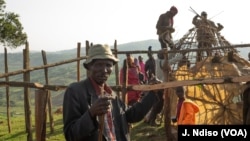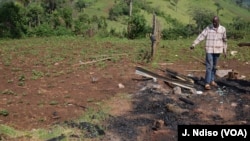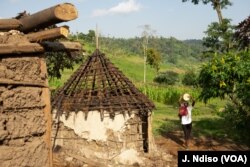Kenyan authorities are evicting thousands of settlers they say are encroaching on the protected Maasai Mau Forest, the source of several rivers that feed lakes across East Africa. The settlers from the Kalenjin community say they were duped by wealthy landowners into buying fake titles to public land.
Authorities have neither prosecuted the landowners nor offered those evicted any compensation.
Samuel Towett has lived in the Maasai Mau Forest for three decades. But when police arrived in early July, he said they destroyed his flour mill shop, which he depended on to provide for his two wives and 14 children.
“The police arrived in a lorry [truck] and began to disperse people. If they found you, you were in trouble, you were beaten very badly,” Towett said.
Police deny such heavy-handed force was used when they began evicting about 12,000 settlers in the Maasai Mau Forest.
WATCH: Kenya Evicts Forest Settlers to Protect East Africa's Water
This is not the first such eviction. Kenyan authorities say settlers have for decades encroached on the protected forest, occupying land illegally, and threatening an ecology on which all of East Africa depends.
“Let the world realize the moment we look at the rights of a few at the expense of the majority — which is actually trans-country, because we are talking about Egypt and Tanzania — then that is the end of it. The climate change we are trying to stop will definitely overtake us,” Member of Parliament for Narok North Richard Kenta told VOA.
The Mau Forest Complex is the source of multiple rivers that drain into Lake Victoria, the starting point of the Nile River, the world's longest water source and the ecological backbone for Egypt, Ethiopia and Sudan.
But since the 1990s, as much as a quarter of the tree cover has been destroyed through illegal logging and settlements.
The settlers say they paid for what they thought were titles to the land but, in many cases, they were sold phony documents.
“Don’t think the people you see came here for free. They came here because of the Maasai. There is no way I would have left my farm in Bomet to live forcefully on someone else’s land. It was sold to us,” evicted person Phillip Cheruiyot said.
But while authorities evict settlers to protect the forest, they offer no compensation and little effort to prosecute the landowners who sold them fake titles.
The current wave of evictions has revived deep political tensions between the displaced Kalenjin villagers and the Maasai community.









